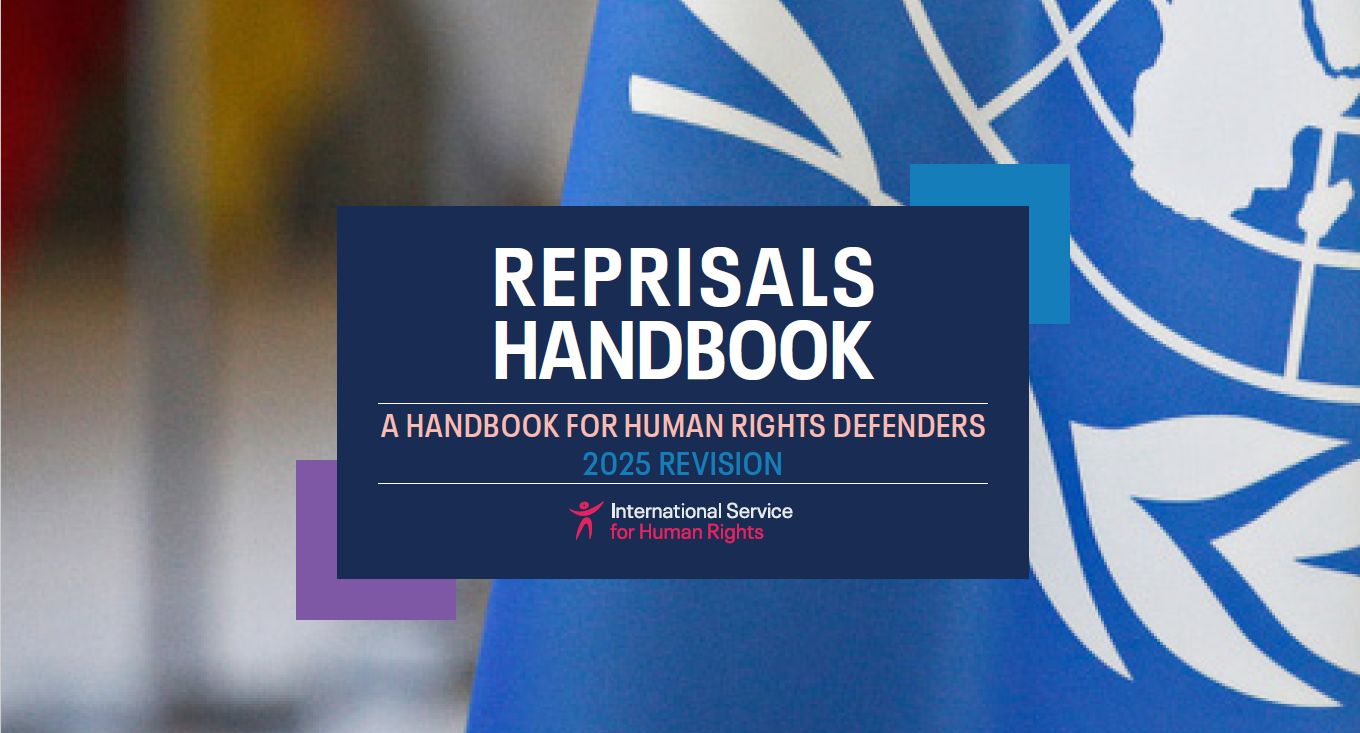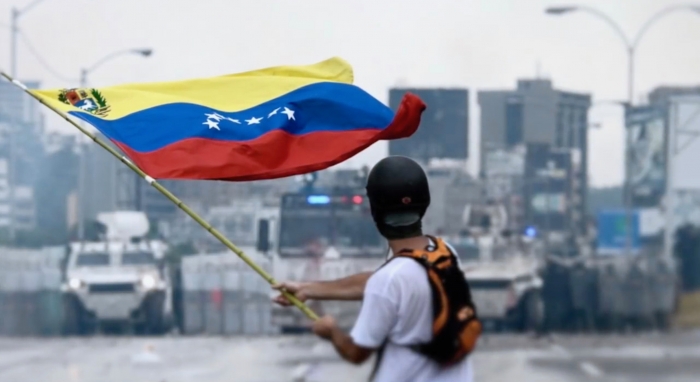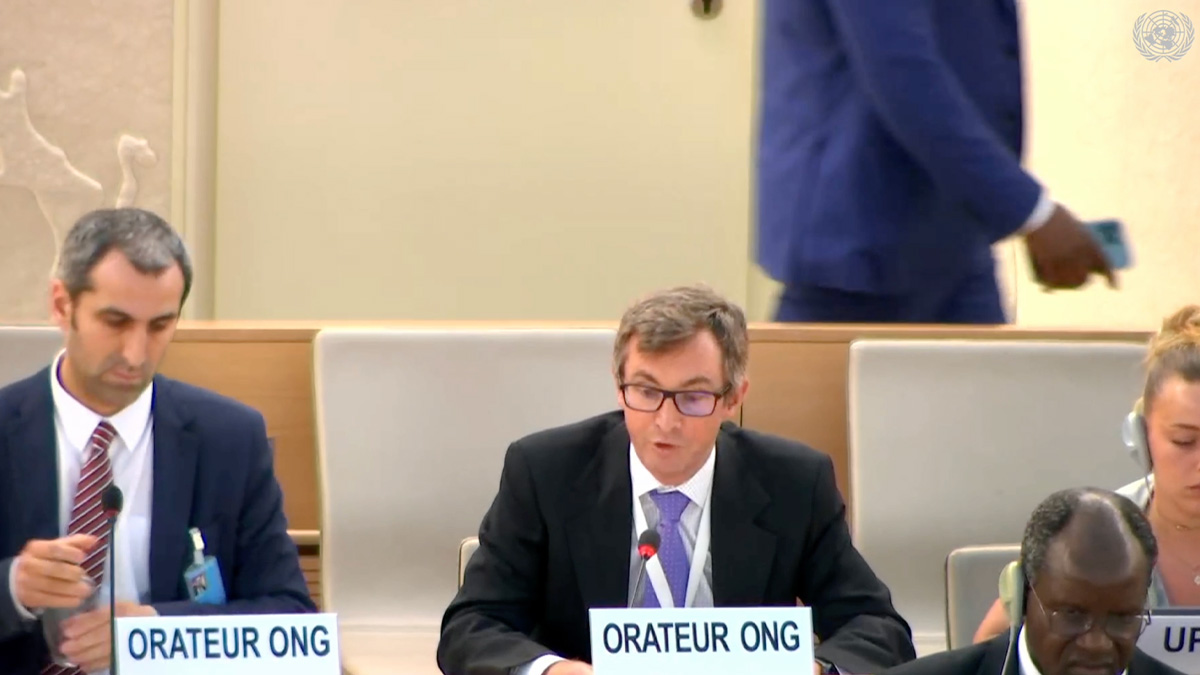(Geneva) – Venezuela is intimidating and harassing human rights defenders, and making unsubstantiated allegations that they are seeking to undermine Venezuelan democracy, 28 international and Latin American human rights organisations, including ISHR, said today. The authorities’ allegations concern the groups’ legitimate functions of documenting abuses and representing victims before international human rights bodies.
Venezuelan authorities should cease this tactic immediately, the groups said. Governments participating in the Summit of the Americas in Panama on 10-11 April 2015 should press the administration of Nicolás Maduro to ensure that human rights defenders can do their job without fear of reprisals, the organisations said.
The government harassment is clearly intended to discredit and intimidate groups that document human rights violations, the groups said.
On 11 February, Diosdado Cabello, president of the National Assembly and member of the governing party, stated on the website of his weekly TV show, Con el Mazo Dando, aired on the state-run Venezolana de Televisión, that ‘NGO representatives from the Venezuelan extreme right’ would participate in hearings before the Inter-American Commission on Human Rights (IACHR) in March. Cabello had previously criticised Venezuelan human rights defenders who participated in the country’s review by the UN Committee Against Torture in Geneva, or traveled abroad to conduct advocacy meetings.
On 18 March, during his show, Cabello read a list of names of individuals and organisations who had traveled to Washington, DC to participate in the IACHR hearings. The list included leading human rights groups such as Provea, Espacio Público (Public Space), Observatorio Venezolano de Prisiones (Venezuelan Observatory of Prisons), Transparencia Venezuela (Transparency Venezuela), Cofavic, Codevida, and Observatorio Venezolano de Conflictividad Social (Venezuelan Observatory of Social Conflicts). Cabello accused them of receiving instructions from the US Embassy in Caracas before traveling to the hearings.
Cabello contends that the information presented on the show had been provided by anonymous ‘patriotic informants’ (patriotas cooperantes).
Twelve human rights defenders who arrived in Caracas on various flights between 20 and 22 March have said that they were followed by unidentified men from when they landed until they left the airport, were filmed or photographed, and/or that officials irregularly searched their bags.
On 23 March, María Alejandra Díaz, a lawyer who represented the government at the IACHR hearings, said on Venezolana de Televisión that ‘The issue of human rights is just a façade’ and that non-governmental groups that participated in the hearings ‘say they are Venezuelan’ but ‘play the imperialist game’ and ‘lie in front of the IACHR to make Venezuela look like the devil.’
An article published on 3 April in the official newspaper Correo del Orinoco accused two well-respected human rights defenders of being part of the US Central Intelligence Agency’s ‘Venezuelan delegation’ at the Summit of the Americas. Their objective is to ‘legitimise destabilisation actions’ in Venezuela, the article says.
Under international law, governments must ensure that human rights defenders are allowed to pursue their legitimiate activities without reprisals, threats, intimidation, harassment, discrimination, or unnecessary legal obstacles. The Inter-American Court of Human Rights held in 2003 that ‘[r]espect for human rights in a democratic state depends largely on human rights defenders enjoying effective and adequate guarantees so as to freely go about their activities.’
The rights to freedom of expression and association may be subject to limitations, but the limitations must adhere to strict standards so that they do not improperly impede the exercise of those rights. Any restrictions should be prescribed by law, be necessary in a democratic society, and proportionate to the aim pursued.
In 2012, the UN special rapporteur on the rights to freedom of peaceful assembly and of association called on countries to ensure that these rights ‘are enjoyed by everyone and any registered or unregistered entities’ and that no one is subject to ‘harassment, persecution, intimidation or reprisals’ for exercising them.
Signatories
- Amnesty International
- Asociación Pro Derechos Humanos (APRODEH) (Peru)
- Asociación por los Derechos Civiles (ADC) (Argentina)
- Centro de Derechos Humanos de la Montaña Tlachinollan (Mexico)
- Centro de Derechos Humanos Miguel Agustín Pro Juárez, A.C. (Centro Prodh) (Mexico)
- Centro de Estudios de Derecho, Justicia y Sociedad (Dejusticia) (Colombia)
- Center for Justice and International Law (CEJIL)
- CIVICUS
- Ciudadanos en Apoyo a los Derechos Humanos, A.C. (CADHAC) (Mexico)
- Comisión Colombiana de Juristas (Colombia)
- Comisión Ecuménica de Derechos Humanos (CEDHU) (Ecuador)
- Corporación Humanas (Chile)
- Coordinadora Nacional de Derechos Humanos (Peru)
- Due Process of Law Foundation (DPLF)
- Instituto de Estudios Legales y Sociales del Uruguay (IELSUR) (Uruguay)
- Instituto de Defensa Legal (IDL) (Peru)
- Instituto de Desenvolvimento e Direitos Humanos (Brazil)
- International Commission of Jurists
- International Federation for Human Rights (FIDH)
- International Service for Human Rights (ISHR)
- Frontline Defenders
- Fundación Myrna Mack (Guatemala)
- Fundación Regional de Asesoría en Derechos Humanos (INREDH) (Ecuador)
- Human Rights Watch
- Observatorio Ciudadano (Chile)
- Robert F. Kennedy Center for Justice & Human Rights
- Transparency International
- World Organization Against Torture




